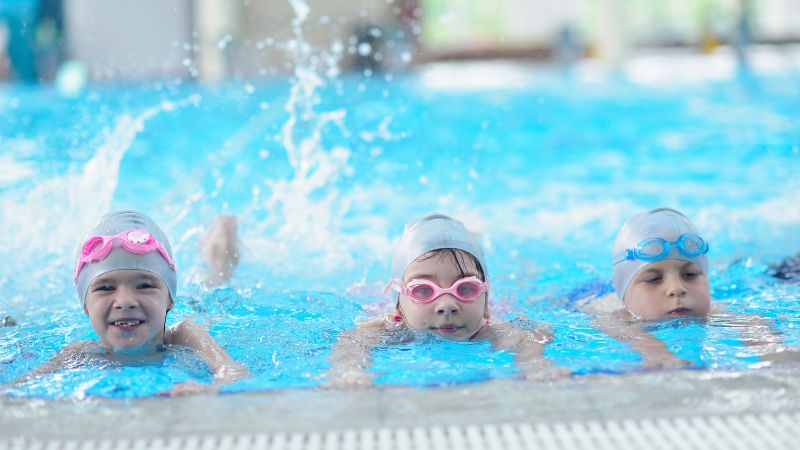Swimming is a beloved activity for many children, especially during the hot summer months. However, if your child suffers from any of the following health issues, it’s best to keep them away from the pool to avoid any potential harm to their health!
1. Health Conditions Where Children Should Not Be Allowed to Swim
Infectious Diseases
Infectious diseases are caused by viruses, bacteria, fungi, or parasites and can be easily spread to others. Common infectious diseases in children include influenza, chickenpox, measles, diarrhea, hand-foot-mouth disease, and mumps. If your child is suffering from any of these diseases, refrain from taking them swimming as it can put other swimmers at risk. Additionally, symptoms such as coughing, shortness of breath, fever, or itching may be exacerbated by exposure to cold water, especially if the pool is not properly sanitized.
 Children with infectious diseases should refrain from swimming
Children with infectious diseases should refrain from swimming
Middle Ear Infection
If your child is experiencing pain, discharge, or reduced hearing due to a middle ear infection, swimming is not advised. The pressure of the water can create a difference in pressure between the inner and outer ear, aggravating the condition. Furthermore, the high levels of chlorine and bacteria in pool water can lead to further ear infections or complications.
 Children with middle ear infections should avoid swimming
Children with middle ear infections should avoid swimming
Chronic Respiratory Conditions
Children suffering from chronic respiratory conditions such as allergic rhinitis, chronic sinusitis, or runny nose should also stay away from the pool. The strong chlorine content in swimming pools can worsen these conditions, especially if your child is allergic to any of the contaminants commonly found in pools.
 Children with chronic respiratory conditions should exercise caution when swimming
Children with chronic respiratory conditions should exercise caution when swimming
2. Health Conditions Where Caution is Advised for Swimming
For the following health conditions, parents should carefully consider whether to allow their children to swim. It is recommended to choose a clean pool with appropriate chlorine levels and to limit swimming time. If in doubt, consult your healthcare provider for personalized advice.
Asthma
While swimming can be beneficial for asthmatic children when done in moderation, it does not prevent or cure asthma. However, swimming may trigger respiratory difficulties and irritate the airways, leading to dangerous asthma attacks. It is best to allow asthmatic children to swim only when they are feeling well, avoid overexertion, and choose pools without chlorine or indoor pools to minimize exposure to respiratory irritants.
 Children with asthma should exercise caution when swimming
Children with asthma should exercise caution when swimming
Atopic Dermatitis and Eczema
Swimming is generally safe for children with atopic dermatitis or eczema, except during flare-ups. Initially, they may experience a mild stinging sensation, but applying softening creams can significantly improve skin condition within three minutes of bathing. Parents should ensure their children with these conditions shower and gently pat themselves dry with a soft towel after swimming.
 Children with atopic dermatitis and eczema should take precautions when swimming
Children with atopic dermatitis and eczema should take precautions when swimming
The above health conditions warrant caution when it comes to swimming. Parents should be vigilant and avoid putting their children’s health at risk by exposing them to activities that may worsen their condition.
Source: Vietnamese Women’s Newspaper


































